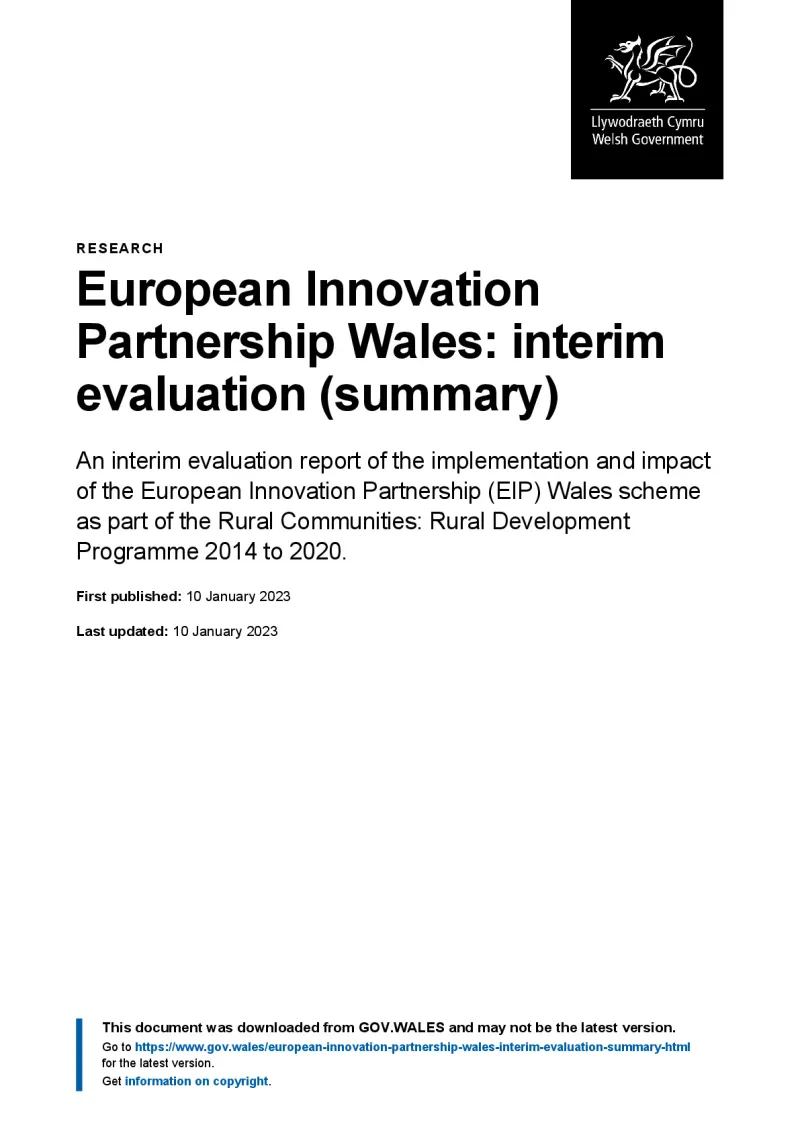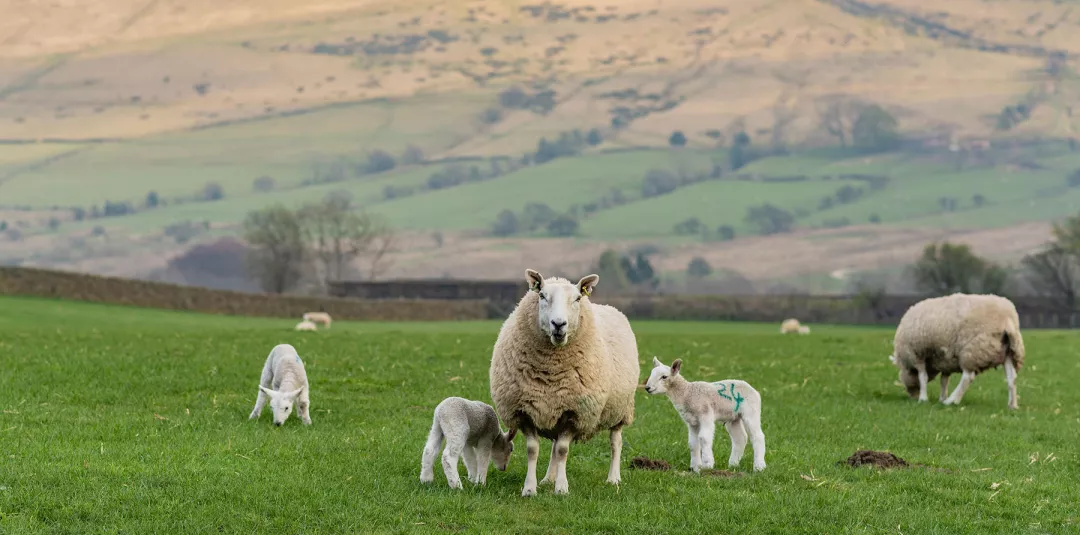Interim evaluation of the European Innovation Partnership in Wales
- Evaluation
- Jobs, Growth and Equality in Rural Areas
- Agricultural Productivity
- Research & Innovation
- Evaluation
- Fostering Knowledge & Innovation
The evaluation report aims to assess the implementation and impact of the European Innovation Partnership (EIP) Wales scheme as part of the 2014-2020 Rural Development Programme (RDP).
- Other
- 2014-2022
- Cross-cutting impacts


This evaluation has been commissioned to assess the implementation and impact of EIP Wales scheme. This interim report is primarily concerned with evaluating the implementation process and considering the impact of projects completed to date.
The report is based on a mixed approach: surveying 84 Operational Groups (OG) members and 30 non-beneficiaries, interviews with 17 delivery personnel, innovation brokers (IBs), and external stakeholders, and a comprehensive review of the scheme’s monitoring information.
To guide the interim evaluation stage, eight evaluation questions were used to explore the level of engagement with the scheme; effectiveness of the application, assessment, and decision-making process, role of the IB, and other key aspects of the design of the scheme; effectiveness of disseminating findings; innovativeness and impact of projects; and the extent to which the cross-cutting themes and objectives were achieved.
Among others, the main findings of this report are the following.
The EIP Wales scheme has been delivered effectively to date. There was broad agreement that the range of projects supported has been appropriate, with the potential for scaling up and generating positive impacts on a broader industry level.
The scheme appears to have fostered innovation, with OG members stating that they are more confident, knowledgeable and likely to conduct innovation in the future as a result of the support. Overall, collaboration between OG members has been positive, beneficial and likely to be sustained after projects have ended.
The geographical distribution of EIP Wales beneficiaries is similar to that of all farms throughout the country. Participating farm businesses have been larger than typical in relation to their size and turnover, reflecting a scheme designed for more commercially minded organisations interested in improving their business operations.
The evaluation has found that the application and appraisal processes were robust, which allowed projects to be assessed on their scientific merit. Whilst it was likely too time-consuming and difficult for most farmers to complete, this was mitigated by the fact that IBs were given a licence to lead the process.
IBs have had a crucial role in delivering EIP Wales projects. Few would have been possible without IB support, given the complexities of managing the initial application processes and the need to manage projects that generate robust results.
There was broad consensus that the grant size is appropriate, making it more accessible to farmers. Linked to this, most farmers believe their projects have been based on their ideas.
When it comes to the actual delivery of projects, however, it seems to have been more mixed, with IBs leading much of the activities. Whilst the size of grants is appropriate to trial new ideas and foster innovation, some stakeholders were concerned about the strategic impact of such investments.
The dissemination of project findings included traditional Farming Connect (FC) channels alongside peer-to-peer networking, with FC open days particularly successful. However, the effectiveness of this approach will need to be tested further during the final evaluation stage, as less than half of the projects had been completed in the period leading up to this report. Consequently, it is too early to make conclusive judgements regarding dissemination and the report can only offer some emerging findings.
The vast majority of OG members believe that their project has been a success. Most have introduced changes, stated that they have received the benefits they hoped the projects would generate, and demonstrated cost savings or new income generated as a result of their project.
The evidence reveals that the cross-cutting themes (i.e. equal opportunities, gender Mainstreaming and the Welsh language (CCT1), sustainable development (CCT2), and tackling poverty and social exclusion (CCT3)) are addressed through EIP Wales, particularly with sustainable development and tackling poverty, where the efforts to generate positive environmental and economic benefits are intrinsically linked within the projects. Additionally, the scheme has contributed towards the three cross-cutting objectives of the RDP (namely innovation, environment, and climate change mitigation and adaptation) for much of the same reasons. There is an intrinsic link to innovation because the main thrust of the scheme is to help farmers and foresters develop new and improved practices, whilst the potential environmental impact of these new practices correlates with the other two objectives.
Author(s)
Welsh Government